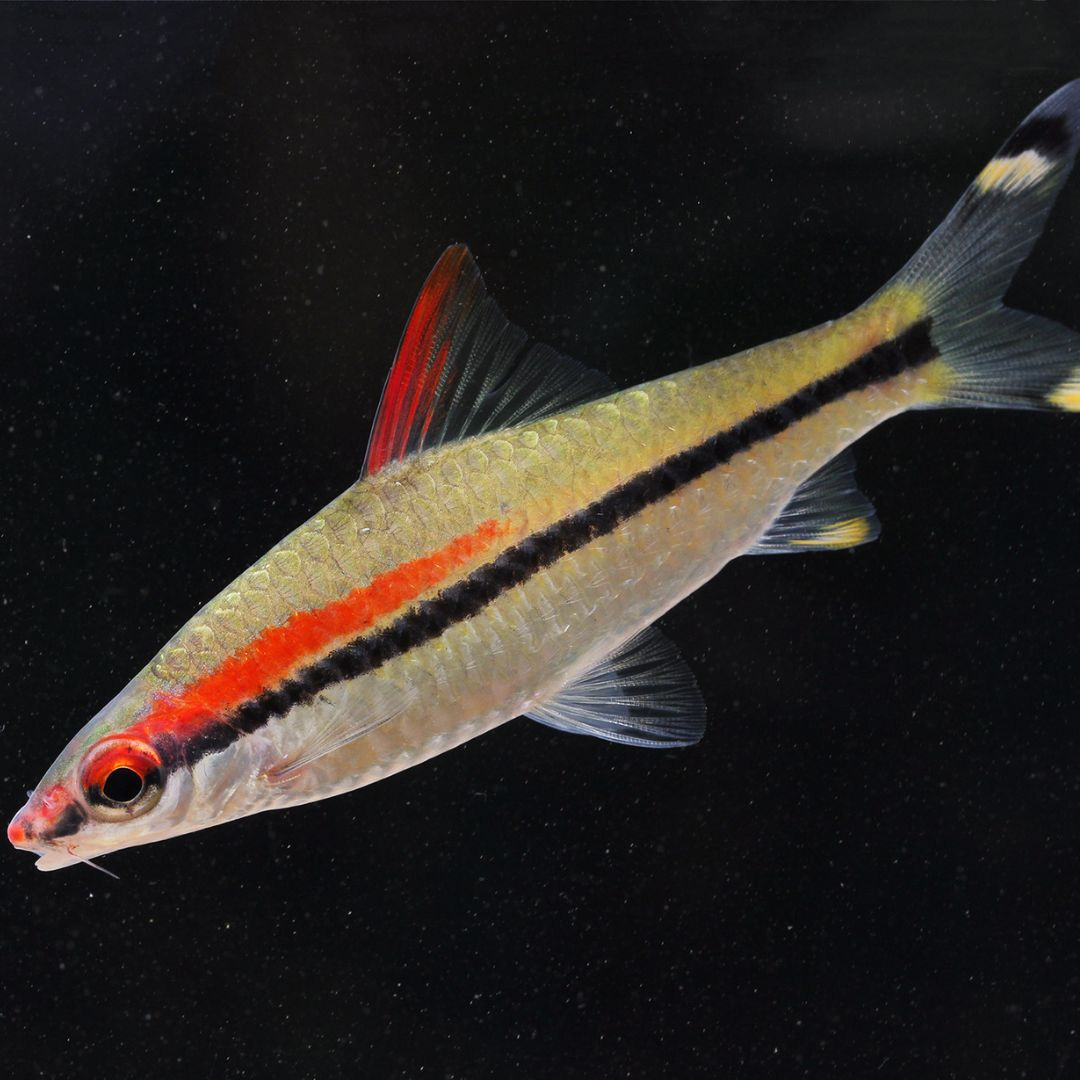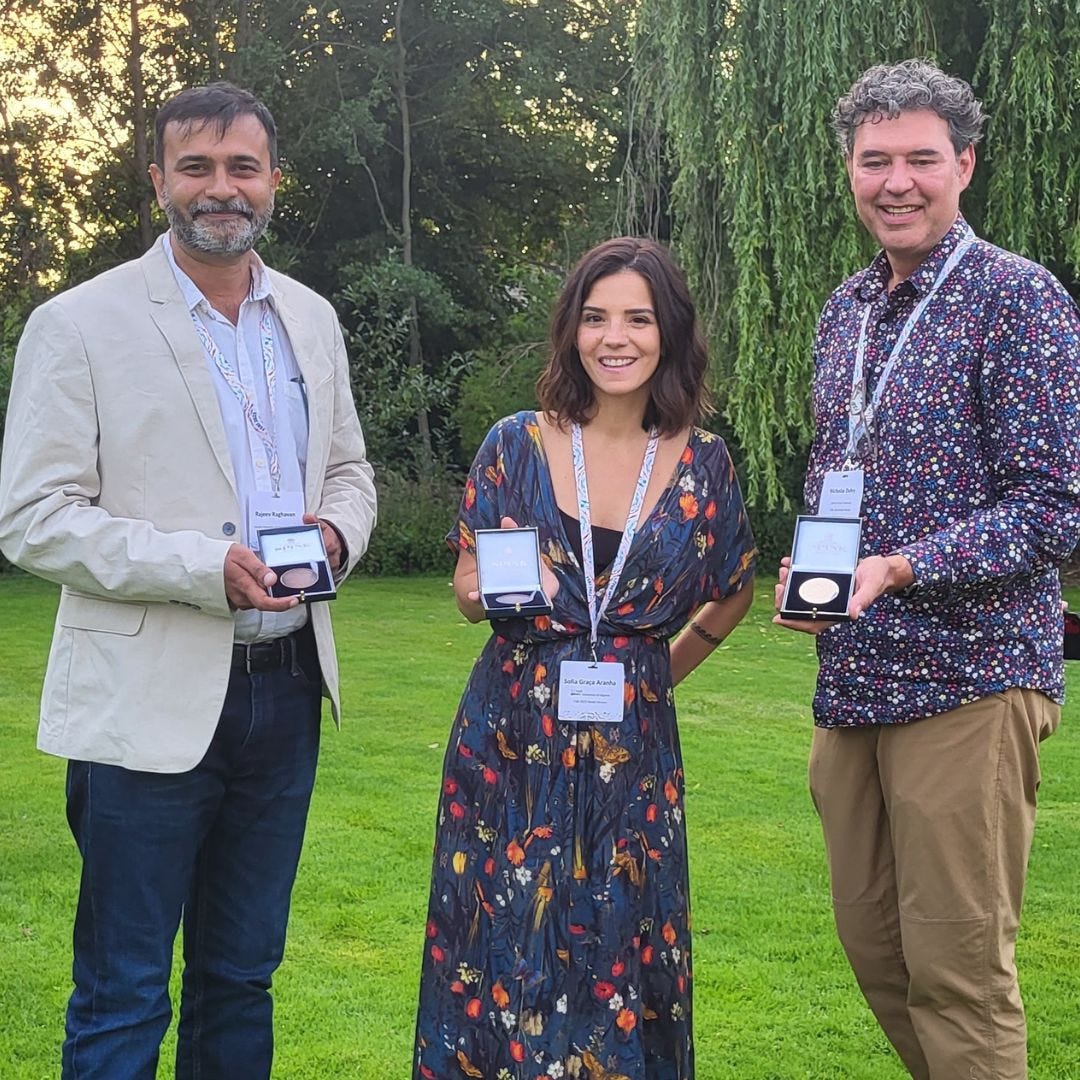All things fishy
A free-wheeling chat with fisheries scientist Rajeev Raghavan, who's making big waves in the world of aquatic conservation
In the world of aquatic conservation, Dr Rajeev Raghavan stands as a prominent figure, making waves with his groundbreaking discoveries and unwavering dedication to preserving our planet's aquatic biodiversity. Currently serving as an assistant professor at the Kerala University of Fisheries and Ocean Studies (Kufos), Rajeev’s journey in this field has been nothing short of remarkable.
He and his team have discovered and described 23 new fish (including three new genera, and two new families), as well as a unique new genus and species of blind subterranean shrimp. Some of his discoveries have received worldwide attention and acclaim – for example, the discovery of Aenigmachanna gollum (the world’s first subterranean snakehead fish), Neolissochilus pnar (the world’s largest cavefish) and Pangio pathala (the subterranean eel-loach which became popular after actor Leonardo DiCaprio acknowledged the discovery on his social media handles).
In recognition of his outstanding contributions to the field, two new fish species, Channa rara and Indoreonectes rajeevi, were named in honour of Rajeev, emphasising his invaluable work in researching the freshwater fishes of the Western Ghats region. Recently, his achievements reached new heights as he was named in Stanford University's prestigious list of the world's top 2% of scientists.
Rajeev's passion for aquatic life and conservation sprouted from modest beginnings. Growing up in the bustling city of Kochi, he initially had no grand plans to dive into the world of fisheries and aquatic conservation. “My fascination with aquatic life began with the simple act of keeping fish at home. My plunge into a career in fisheries was not planned at all. As a biology student in Class XII, MBBS was the obvious choice back then. But I couldn’t get in,” he said.
Fortuitously, this was a time when innovative, new-generation courses were emerging. Fisheries, one of these budding fields, became Rajeev’s chosen path, setting the stage for a career that would change the course of aquatic conservation in India and beyond.
Despite his urban upbringing, Rajeev’s early connections with nature were limited to sporadic excursions to the nearby backwaters. It was during his master's program that he started to immerse himself in the intricacies of fisheries, igniting his passion for aquatic life.
“Even then, we were taught very little. Then, in 2001-03, there was definitely a lack of priority for research. We were years behind the global standards, and this was easily evident. The reason I went abroad was so that I could get more exposure and bridge the knowledge gap,” Rajeev said. His real transformation into a researcher occurred after his doctoral studies at the University of Chinese Academy of Sciences in Wuhan.
“It was during the three years I spent with the International Union for Conservation of Nature (IUCN) in the UK that my research goals started to become more clear and ambitious. I was working on freshwater fish conservation then, primarily focused on the Western Ghats. It was also a time when I worked on IUCN’s Red List. I was its coordinator for Asia and Oceania. This experience proved crucial in later years,” Rajeev said.
At its simplest, the IUCN Red List is a database that helps governments and policymakers understand the health of ecosystems. “The harsh truth is we don’t have the money to save all the species. So, prioritisation is essential. By a combination of science and computation, Red List is a prioritisation tool,” Rajeev explained.
Then, in 2015, Rajeev returned to India. “Even before I went abroad, the goal was always to return and start a research group here. It made sense as most of my work in the UK was still India-based. I was only waiting for the right opportunity,” he said.
That year, Kufos had an opening for a very specialised post -- in fish taxonomy. This is not commonly found in other universities. In fact, Kufos is the only university in India to have this post. It was in the same vein as Rajeev’s research focus. So he applied and landed the job. “Also, a return to Kochi, my hometown, was an added bonus,” he elaborated.
However, upon his return, Rajeev encountered a concerning trend in the fisheries curriculum in India. Over the past two decades, the focus has remained predominantly rooted on exotic fish species. According to him, this educational approach left students with little knowledge of native fish species, creating a significant obstacle in the path of effective fish conservation.
“If asked to name ten local or native fishes, students would be stumped. They’d known a few marine fishes that ended up as food on their plate. Other than that, nothing. That’s because the idea of fish here is all about food. Fisheries is a production-based sector, and the focus is on how to build better boats and nets, how to find more value-addition in fish, etc. Unlike the robust efforts seen in wildlife or bird conservation, fish conservation has taken a back seat. This is a big challenge,” Rajeev said.
Challenges in freshwater fish conservation loomed large. Kerala boasted numerous rivers, yet the primary focus remained on marine life. Rajeev’s first efforts were to highlight that freshwater fish were more endangered and often restricted to specific regions.
“Freshwater fishes are point-endemics, meaning they are restrictive in their distribution. There are fishes in the Chalakkudy river and Thekkady reservoir that are found only there and nowhere else. Sadly, people are not connected to freshwater fish as they are to marine ones. In fact, they don’t even know what many of the river fishes look like because of murky or rapid waters. This lack of awareness breeds indifference. This is the other challenge,” Rajeev explained.
Over 60-65% of the Western Ghats' freshwater fish species were found nowhere else on Earth, rendering them exceptionally vulnerable to environmental threats like pollution, population growth, river engineering, and dam construction.
While the urgency of conserving freshwater fish was clear, subterranean fish conservation had also gained prominence. This is also one of Rajeev’s research interests. “Unlike river and marine fishes, subterranean fishes are living in people-dominated areas. Groundwater extraction poses a big threat to these fishes that have enjoyed conditions with little or no human interference. So, they stand at the risk of faster extermination than others. Hence, the priority. That said, my research focuses on fish in both subterranean and freshwater ecosystems,” Rajeev said.
Citizen participation emerged as a critical aspect of subterranean fish conservation. Since these fish often inhabited wells near people's homes, citizens played a pivotal role in reporting fish sightings in their wells. However, the small size and worm-like appearance of these fish sometimes led people to perceive them as pests, resulting in their unintended destruction.
“Our recent efforts have been to educate the public that the appearance of small fishes in wells is a sign that the water is safe. Besides these, we also hold workshops and awareness classes,” Rajeev said, adding, “At the species level, these underground fishes found here are not found anywhere else in the world. So it is very vital we protect them. Also, to date, we have only discovered 10% of underground fishes. We have better chances of finding them with citizen partnerships.”

Furthermore, Rajeev stressed the importance of enforcing existing laws aimed at protecting fish diversity. Regulations, such as setting a minimum legal size for caught fish, were designed to prevent the capture of juvenile fish. However, these laws were not consistently enforced. He emphasised that effective conservation required the cooperation of restaurants and retailers who could choose not to purchase fish caught in violation of these laws, thus safeguarding fish populations. “True conservation requires a collective effort,” Rajeev said.
Dr Rajeev Raghavan's journey from a young boy keeping fish at home in Kochi to a globally recognised aquatic conservationist has illuminated the importance of preserving our planet's aquatic biodiversity. For those looking to nurture a similar interest in aquatic life, Rajeev said, “Keep a fish at home. Ideally, a local one.”

A shorted version of this article was first published in The New Indian Express, Kochi.









